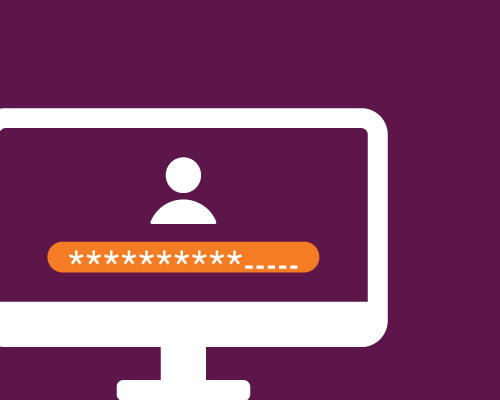Updated August 2025
Five ways to protect against cybertheft.
You won’t need a knight in shining armor for this.
You may be thinking to yourself; my passwords are strong enough and I know a scam when I see one! You’d be shocked at how good cybercriminals are at cracking passwords and sending emails that look legit. Over the last five years, the FBI received 3.79 million complaints of internet scams, and $37.4 billion total losses reported.
Here are five ways to make breaking into your digital world a lot harder.
1. Create many passwords that are long.
Creating many difficult passwords can be frustrating. However, it’s worth it to create a different password for each account to protect yourself from criminals. A 15-character password is much tricker for hackers to crack rather than an eight-character one. Passwords should be random, and should not include any personal information.
2. Beware of the phishers.
Have you ever received an email that seemed a little fishy? Phishing emails pressure the receiver to give account numbers, passwords, or other information useful for theft. The messages often seem urgent, where action must be taken to recover your accounts. Savvy scammers also practice vishing and smishing.
Vishing is when you receive a phone call pretending to be a business, and smishing is when you receive a text message from a fraudster acting as a business.
Before you click on something or provide your personal information, ask yourself these questions: Do I know the sender/caller? Was I expecting this message? Is this a common way for this business to contact me? Is there a legit reason I need to respond now?
👍 Pro-tip: Hover over the sender to view the email address. Look for random letters, numbers, and the address domain. Example: $TCUhe1p@gmail.com would be a suspicious email address.
3. Watch your actual stuff.
Whether you’re on the plane, at your favorite study spot, or even at work, keep an eye on your stuff.
Don’t let your phone or laptop out of your sight in public. If someone were to grab your device, or even take a peak while it’s unlocked, your personal information can easily be stolen. When in doubt, lock up your device!
4. Use multifactor authentication.
We get it. It’s annoying to give a password and another piece of identifying information-such as a code texted to your phone-each time you attempt to login.
Still, it’s worth the extra seconds to turn on multifactor authentication to prevent hackers.
5. Don't use public Wi-Fi and chargers.
While the phone charger in your Uber may seem like a nice gesture, you may be surprised when you trade a phone charge for your information. The same goes for using public Wi-Fi at your local hair salon.
Free is not free. Thieves use chargers to hijack your devices and wireless networks to steal your data. You’re better off bringing your own charger and connecting to your personal hotspot.
With these five tips, you can fight cyberthieves and keep your digital realm protected. Stay smart, stay safe, and keep your personal information out of the wrong hands.





